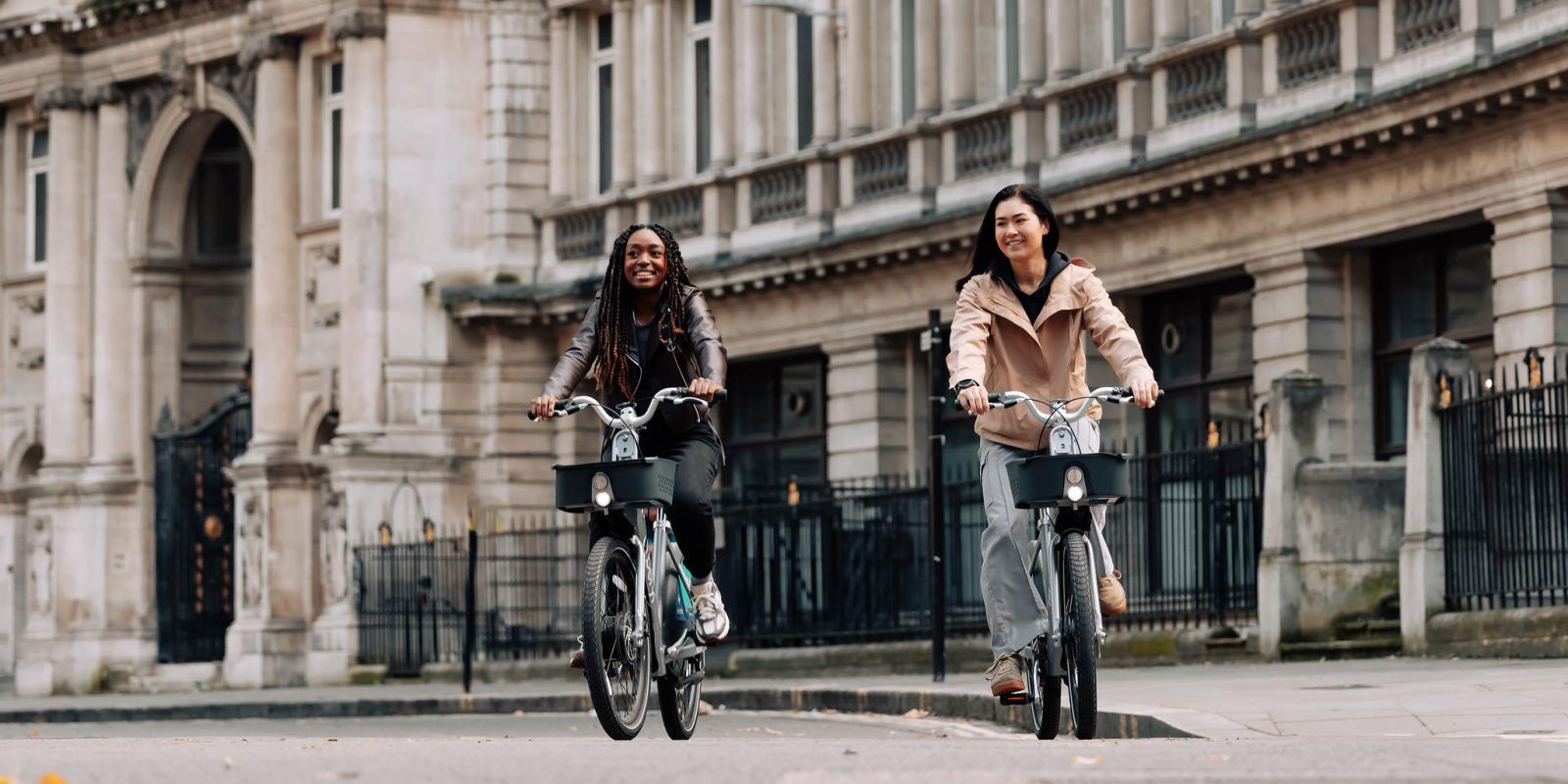2024: A year of progress and achievement
It’s been a year of growth, development and expansion for Beryl, as we further established ourselves as the UK’s leading provider of sustainable shared transport schemes.
One of the highlights of 2024 was the release of our brand new e-bike model. Released in September, the BBE2 was the culmination of a well-established feedback loop between riders and local authorities, in-house mechanics and the Beryl design team. Designed to provide an industry leading rider experience, the e-bike is 16% lighter than previous models and packed with other accessibility features. These include a low-step through frame, an adjustable seat clamp and ‘safe start’ technology, which ensures a smooth first few pedals as the ride begins. A two-speed gear hub also provides automatic gear shifting throughout the journey, helping less familiar riders to always be in the right gear.
Initial feedback has been really positive and the BBE2s have been very popular during their first few months on the streets. We’re confident that, as the vehicle becomes more established in 2025, its improved accessibility will break down the barriers to shared transport for even more people.
We’ve introduced several new schemes, bringing our e-bikes to the streets of Worcester, Guildford and Stevenage as well as the three Dorset towns of Dorchester, Weymouth and Portland. Some of our existing schemes have also expanded, including Cornwall, Leeds and Watford. By adding new bikes and bays and expanding to new areas within schemes, we help to make them even more accessible and user friendly to riders.
We’re fully aware of the positive impact that our schemes have had on areas, but it’s always encouraging for this to be recognised externally. In May, we became the first shared transport provider to scoop a prestigious King’s Award for Enterprise, recognising our commitment to sustainable development. The award recognises our commitment, not just as a green transport provider but also as a functioning business, to helping the UK government meet its ambitious aims to reach net zero by 2050. More than that though, it also shows how we value people and places and really believe in the power of sustainable transport to improve lives.
Our Rider Report - an annual survey of thousands of people that have signed up to Beryl - was bigger and better than ever this year. The total number of responses was more than four times greater than the previous years’ report. Once again it was packed with interesting insights, outlining some of the motivations, barriers and long term impacts relating to Beryl vehicle use. We’re set to publish the report in early 2025, so keep an eye out for the latest findings.
We’ve generated millions of rides and hours of physical activity, saving hundreds of tonnes of carbon emissions this year. However, as a B-Corp company, we look to go beyond mere service provision and have been delighted with the positive social impact we’ve had on the towns and cities we serve. We’ve introduced social prescribing, where healthcare professionals can prescribe free Beryl minutes to people for whom free cycling has been deemed beneficial to their mental and/or physical health. We continue to subcontract services to local companies and provide upskilling, employment and work experience opportunities to people. We also continue to run our Community Champions scheme, disseminating free minutes to charities and community groups that apply.
Safety remains paramount to us and this year saw a record 546 attendees at our regular in-person Scoot Happy training sessions. We also had a further 837 individuals completing the online program. This strong uptake emphasises the effectiveness of providing accessible and multi-format resources in promoting responsible e-scooter use.
We’re really proud of everything we have achieved this year and we will continue to work with both our partner agencies and our riders to drive further improvement throughout 2025. Only by doing that can we continue to contribute towards cutting traffic congestion and carbon emissions while getting people healthier and more active.
